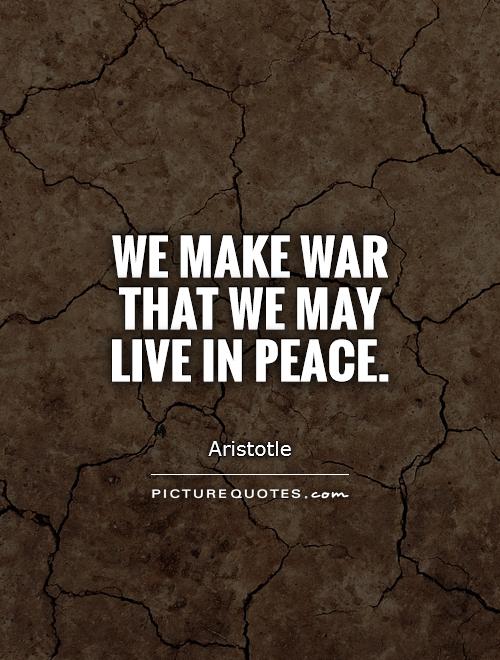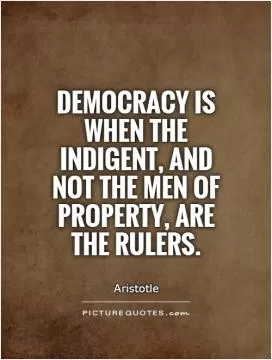We make war that we may live in peace

We make war that we may live in peace
Aristotle's words, "We make war that we may live in peace," encapsulate a complex and often controversial aspect of human nature and society. This statement reflects the idea that conflict and violence are sometimes necessary in order to achieve a greater good or maintain a sense of order and stability. In the context of Aristotle's philosophy, this concept can be understood through the lens of his ideas about ethics, politics, and human nature.Aristotle believed that human beings are inherently social creatures who are naturally inclined towards living in communities and forming relationships with one another. However, he also recognized that conflicts and disagreements are inevitable in any society, as individuals have different needs, desires, and interests that may come into conflict with one another. In order to address these conflicts and maintain a sense of order and harmony within a community, Aristotle argued that it is sometimes necessary to resort to war or violence.
From Aristotle's perspective, war can be seen as a means of resolving disputes and conflicts between individuals or groups in a way that ultimately leads to a more stable and peaceful society. By engaging in war, individuals and communities are able to assert their interests and defend themselves against external threats, thereby ensuring their survival and security. In this sense, war can be seen as a necessary evil that is justified by the need to protect and preserve the common good.
However, it is important to note that Aristotle did not advocate for war as a first resort or as a means of achieving personal gain or power. Instead, he believed that war should only be waged when all other options have been exhausted and when it is truly necessary for the greater good of society. Additionally, Aristotle emphasized the importance of conducting war in a just and ethical manner, with a focus on minimizing harm and achieving a lasting peace.












 Friendship Quotes
Friendship Quotes Love Quotes
Love Quotes Life Quotes
Life Quotes Funny Quotes
Funny Quotes Motivational Quotes
Motivational Quotes Inspirational Quotes
Inspirational Quotes